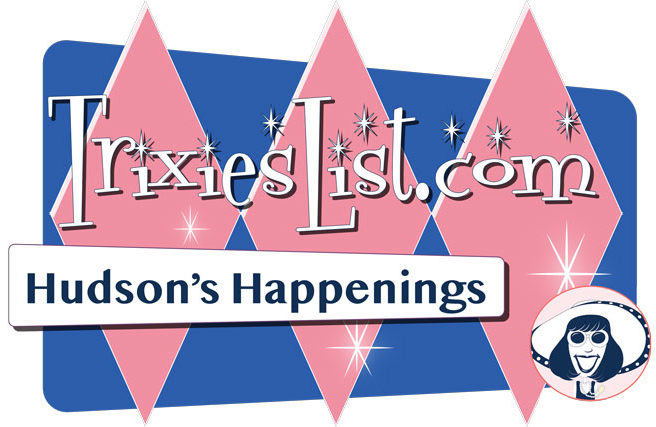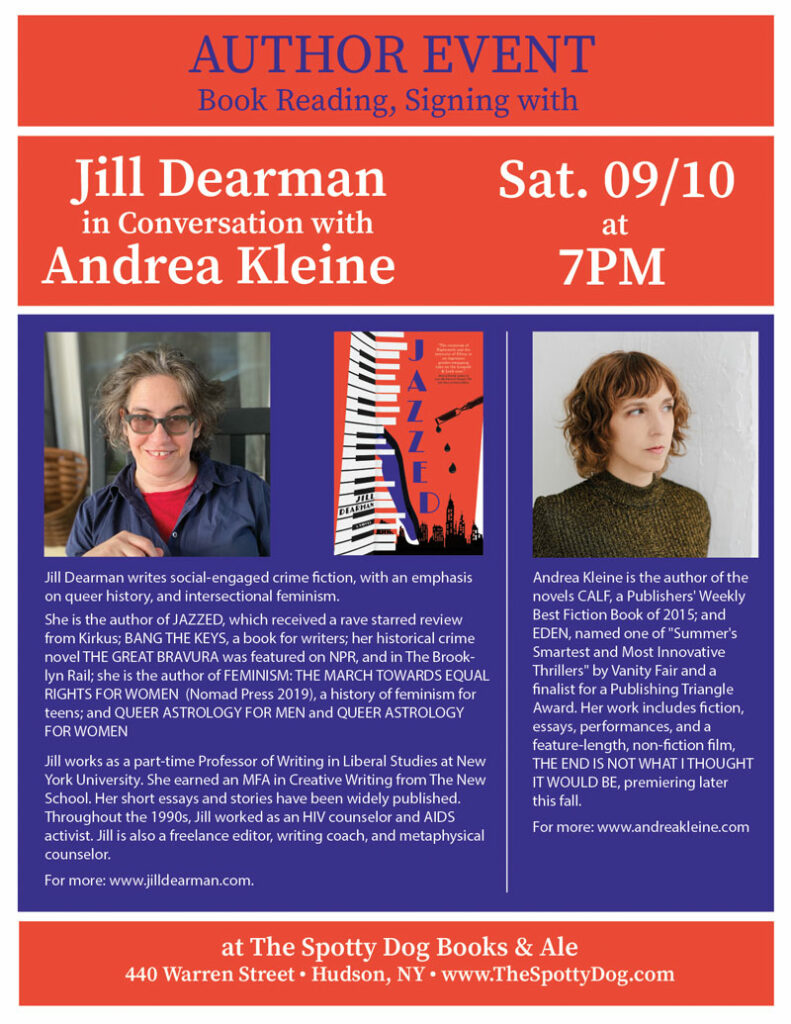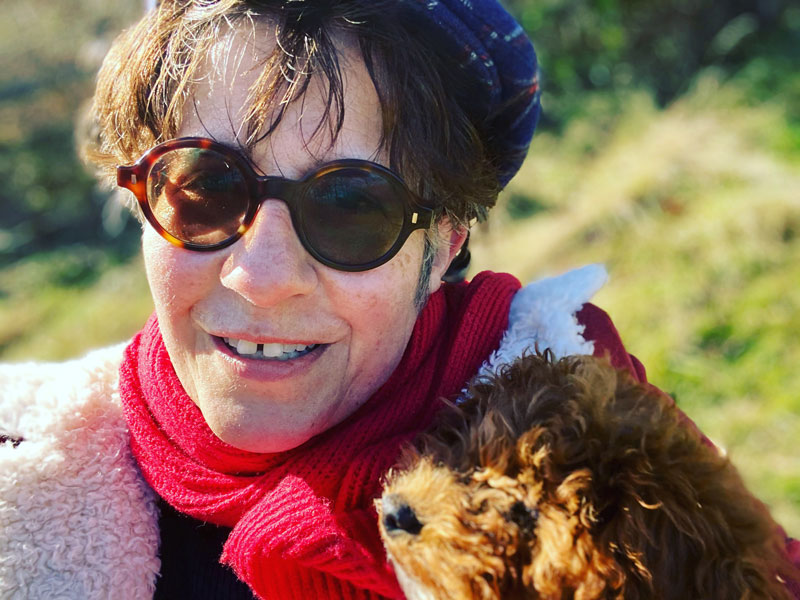Trixie’s List: First of all, what brings you to Hudson? How long have you lived here and how do you like it?
JD: Besides the witness protection program? I’m a second generation New Yorker and a Scorpio, and honey, I honestly needed to slow down, calm down, and be closer to nature. My nervous system was a wreck. I didn’t realize how peaceful I could feel till I landed here on Gilligan’s Island – I mean Brooklyn North! I mean Hudson! I wanted to move to the country. Of course, I always say about Hudson: Hudson is the country, for people who don’t know what the country is – like me! Walking the paths at Olana and Art Omi with my pup feels like “the wild” to me after growing up in a High Rise apartment building in Queens. I really love it here and I mean LOVE. The community, the mix of country and city, the art, the cuteness. I adore Hudson.
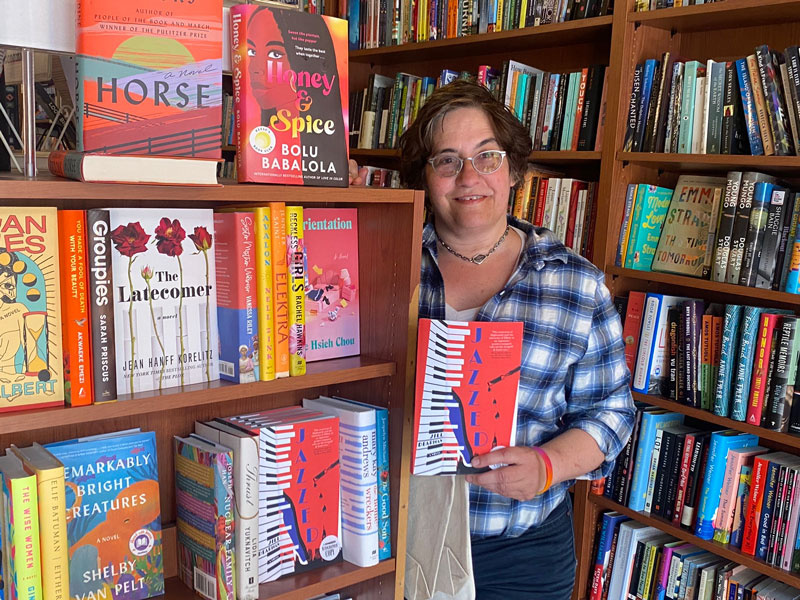
Trixie’s List: What inspired you to write Jazzed? What is the basis of the book?
JD: When I was a kid my father, a NYC cab driver who loved true crime, shared the story of Leopold and Loeb with me. Like many who get immersed in this riveting case of two college-age homosexual “thrill-killers” from the Jazz Age, I became obsessed with it. I mean for decades! After my last novel, The Great Bravura came out, I got an idea to re-examine the story from a 21st century point of view, and see what I could discover if I made the lead characters women. I changed the setting from Chicago to New York City – Barnard College specifically – because I have a bit of a fetish for the Seven Sisters schools! And I wanted to make the main characters – Wilhelmina “Will” Reinhardt and Dolly Raab jazz musicians, because the music of the ‘20s is very dear to me, and a lot of it is very queer too!
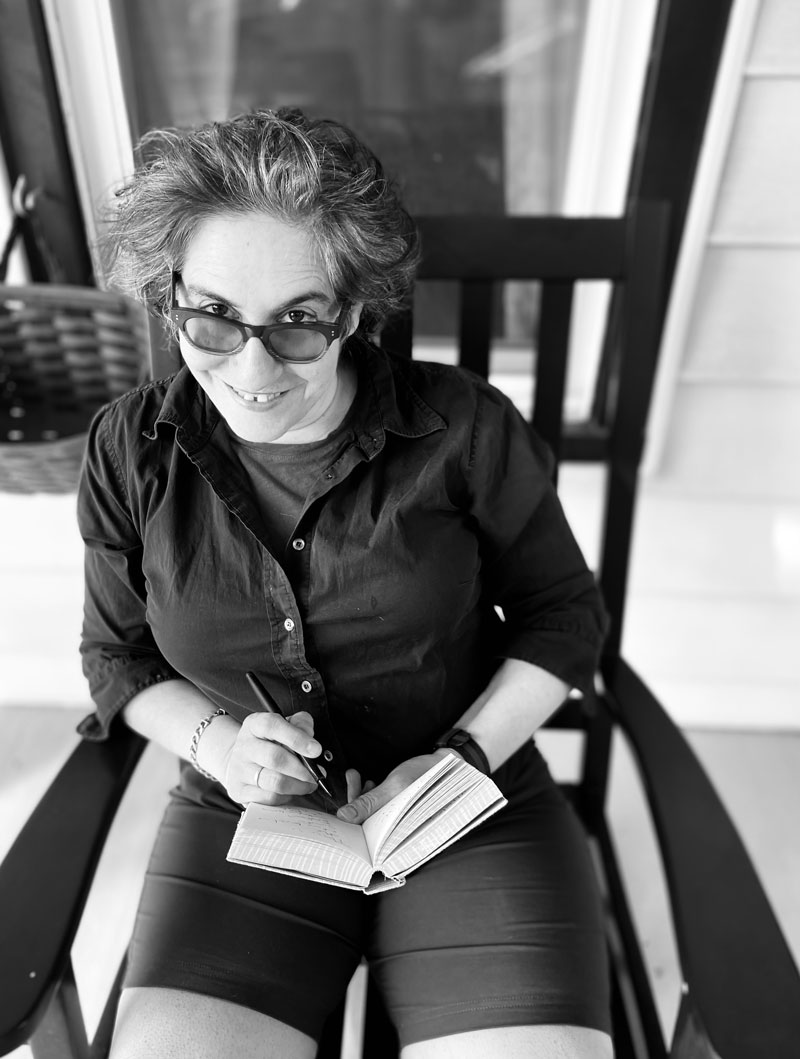
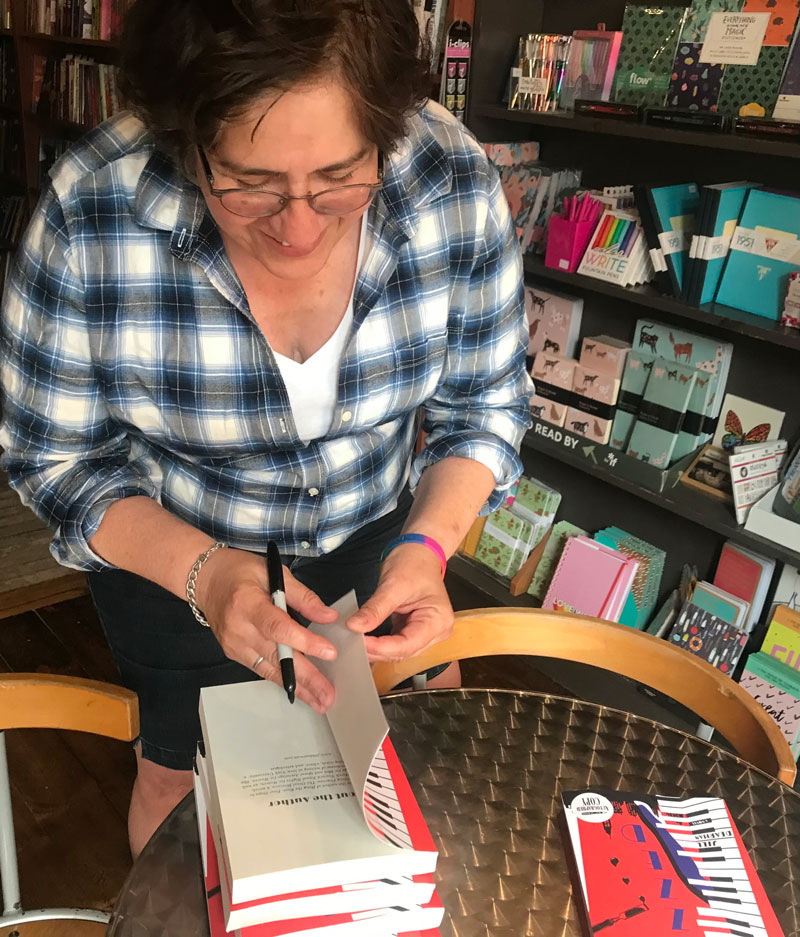
Trixie’s List: The novel takes place in the roaring 20s – do you see any parallels the 20s of today?
JD: So many! The 1920s was a time of great progress: women finally won the right to vote; the Harlem Renaissance led to a watershed moment for Black artists; breakthroughs in Quantum Physics led to a new era in scientific theory. That said, the terrible aspects were truly horrific and not so different from the 2020s: immigration restriction and rampant nationalism; gays and people of color being weeded out through the pseudo-science of eugenics; and women were kept under tight control by men, with help from the rigged psychiatric and legal systems as well as the prejudices of the media.
Trixie’s List:The main characters are criminals. Do you feel that there are any challenges/hurdles for a reader to overcome when sympathizing with “bad-acting” characters?
JD: I think readers will find that the intensity of the love affair is so relatable, as are the characters’ youth, that they will be able to put themselves in Will and Dolly’s shoes. The novel is what I’d call “socially-engaged crime fiction,” meaning, the reader is given the chance to imagine that they are living during very oppressive times, under tremendous pressure to conform and with very little true freedom. Think of Bonnie and Clyde. Think of today!
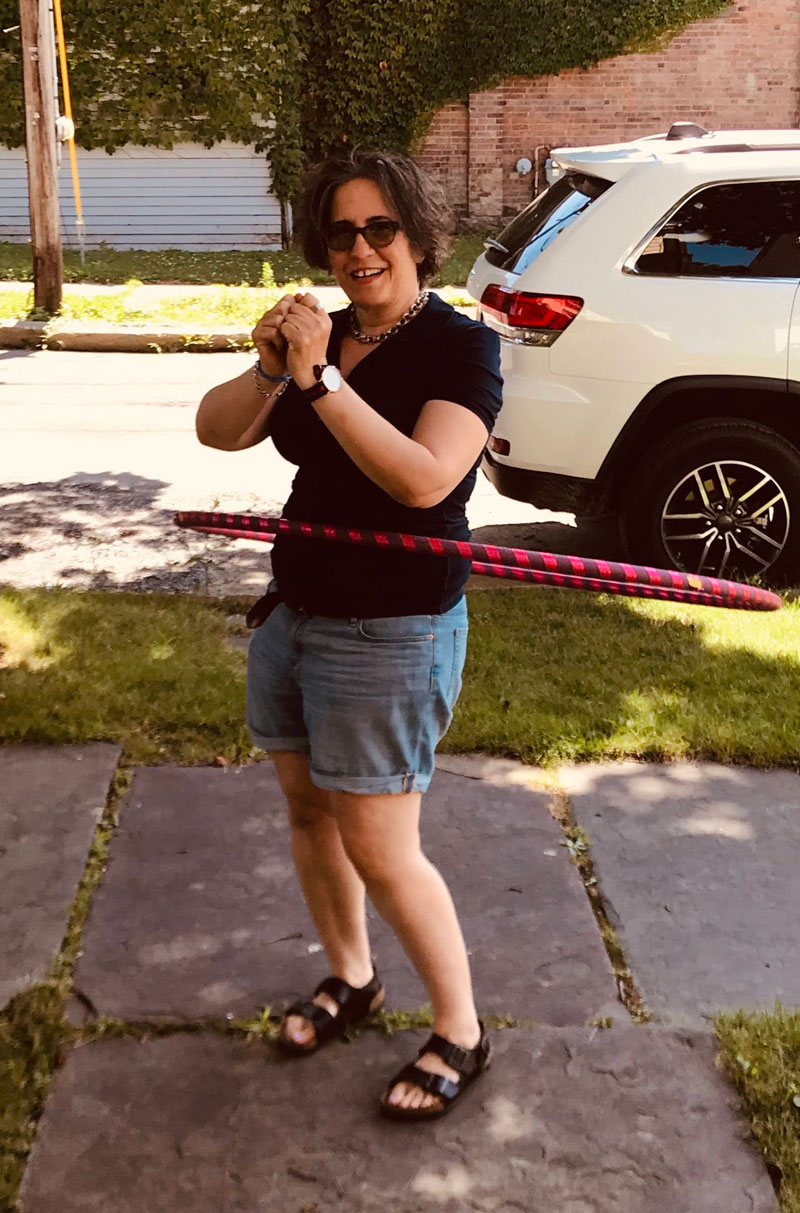
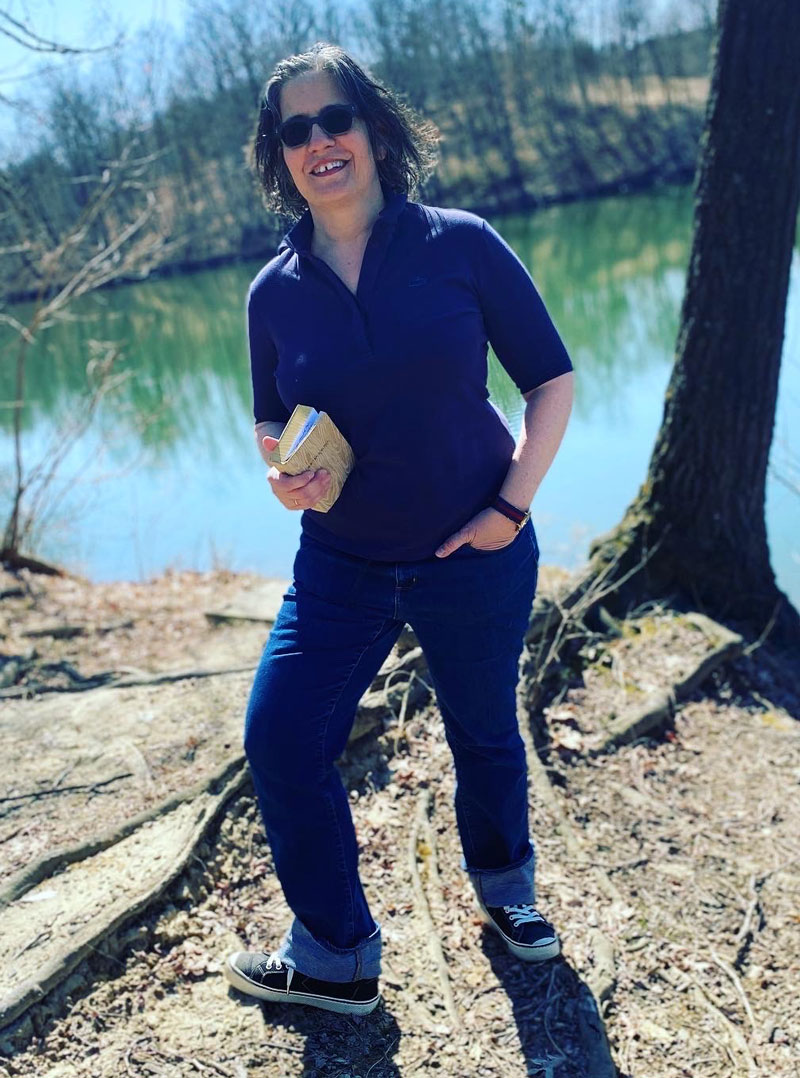
Trixie’s List:What has been some of the reactions from readers? Does the book resonate with younger readers who may not have grown up with the same LBGTQ social stigmas?
JD: One of the best things so far about the publication of Jazzed is the way that younger readers have responded. There are so many intersectional issues in the book and young readers seem able to really make that leap into the heartbreak of what it was like to be queer, to be a woman, to be a Jew, to be a person of color during this strange era in American history. I mean every day they see their ability to express themselves expand, and then just as quickly see their rights being threatened, taken away. Ever since I was a kid I’ve felt absolutely perplexed by the hypocrisy of the adult word, the conventional world. And I feel that same gut level response to the injustices of our society today. I wrote this novel because I wanted to create a book that was at once a sexy, crime-laden page turner, but at the same time a deep exploration of the oppressive social forces that created the criminals.
Trixie’s List:Tell us about the reading at “The Spotty Dog”.
JD: Andrea Kleine (author of Eden) will be talking with me about the book and lots of other fun stuff. I’ll be signing and reading, and I can promise a good time will be had by all! The start of the school year / end of the summer season can be so jarring. This event will take the edge off and help us slide into fall with excitement I hope!
Trixie’s List: Any words of advice for aspiring authors?
JD: Well, I am also a freelance editor and a writing teacher (at NYU), and I find that looking at a book as a whole is really helpful. Obsessing too long over a troublesome scene, or losing spirit after a bad writing day are both natural, but writing a book is about the long game. It really is one day at a time.
Trixie’s List: What is your next project?
JD: I have a short piece in process – also gender-swapped, and it takes place right here in Hudson!
